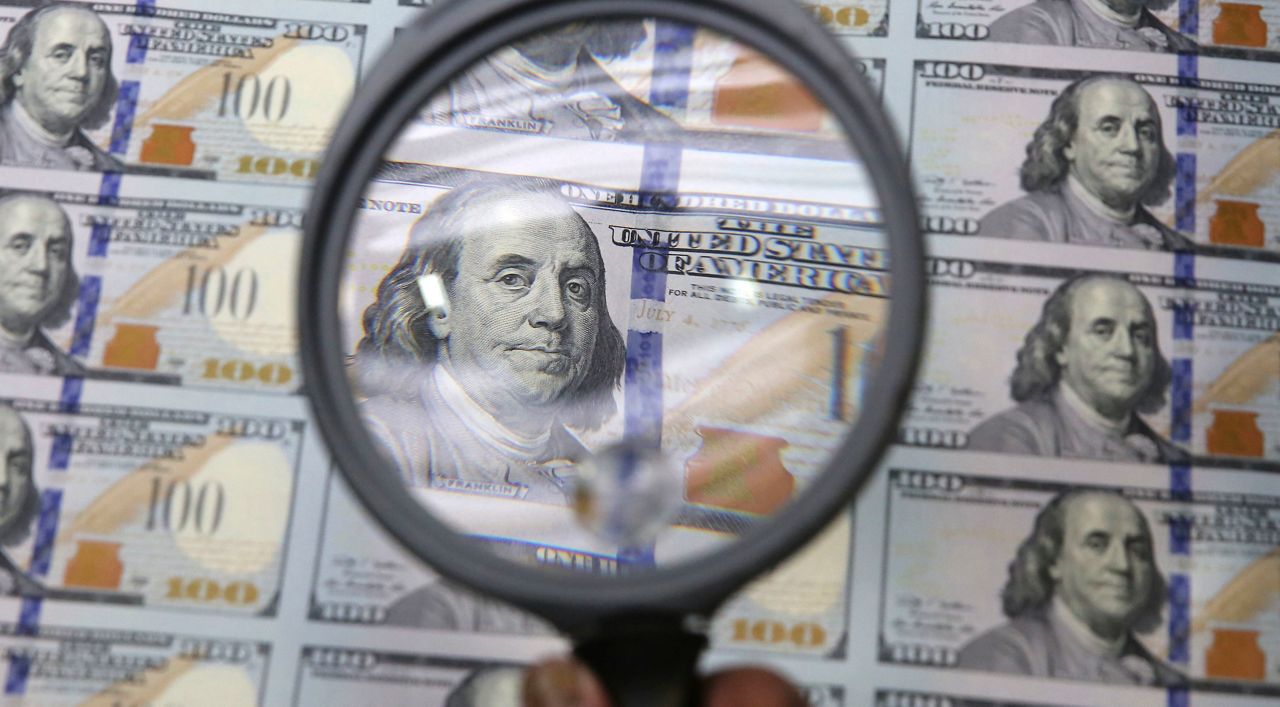NATIONWIDE -- The Coronavirus Aid, Relief and Economic Security Act (CARES) was passed in late March to help the American economy stay afloat as millions were affected financially because of the coronavirus pandemic.
A major part of the CARES Act promised certain households a one-time $1,200 payment including:
- Single adults earning up to $75,000
- Heads of households earning up to $112,500
- Married couples filing jointly earning up to $150,000 per year in gross adjusted income plus $500 for each child
That $1,200 amount decreases by $5 for every $100 in yearly income above that amount.
READ MORE | How Texans Can Get Relief from the Coronavirus Stimulus Package
Single adults earning $99,000 per year or more, and couples earning $198,000, would get nothing. Each household’s income will be based on your 2018 or 2019 tax returns.
As checks started to be deposited into bank accounts around Easter weekend, several myths started appearing as people waited on their checks.
Check out these myths debunked below:
Myth: I have to apply to get a stimulus check.
Debunk: No. If you filed a 2018 or 2019 tax return (and meet the financial requirements), you will receive a stimulus check automatically.
If you do not typically file an income tax return, you can provide information to the IRS to get a stimulus check. If you filed your tax return but didn’t provide any direct deposit information, the IRS has launched an online portal so you can provide banking information.
Myth: I get $500 for every dependent.
Debunk: No. To qualify as a dependent for your stimulus check, a child must be 16 years old or younger. This means that many high school and college students won’t be eligible to count as a dependent for purposes of the stimulus check.
Myth: It will take months to receive my check.
Debunk: It depends. If the IRS has your direct deposit banking information, then you should receive your payment in the next few weeks.
Those who still need to file a return and those who receive their tax refund via a paper check will possibly wait months to receive their stimulus check.
Many Americans should have received their deposits by April 15, according to the U.S. Department of Treasury, and the department expects a large majority of eligible people to receive their check within the next two weeks.
Myth: Social Security and other benefits recipients are ineligible
Debunk: As long as you have a Social Security number and meet the income eligibility requirements, you will receive a check. Those who receive Social Security retirement benefits, as well as disability (SSDI) and Railroad Retirement benefits, will not need to file a new tax return to receive their payments. The IRS will use the bank account information already on file.
Myth: The stimulus checks are taxed
Debunk: The stimulus checks are not taxable income. The checks are structured as refundable tax credits.
Myth: The stimulus check will negatively affect me next tax season
Debunk: If all the information on your tax returns is correct, you will not repay the check next spring.
The IRS stimulus check is in addition to what you’d already get; it’s not a portion of your 2020 tax refund that you’re receiving early.
It is possible, however, that you may receive more money when you file your 2020 taxes. While the checks are based off of your prior tax returns, they are technically credits for 2020 taxes, per the Tax Foundation. If you should receive a larger credit based on your 2020 adjusted gross income (AGI), then you will receive the difference next year.
You will not be penalized by the IRS if your 2020 AGI is higher than this year’s.
Myth: If I receive unemployment, I do not qualify for a stimulus check
Debunk: The unemployment piece of the stimulus package is separate from the stimulus check. The bill allows for everyone laid off or furloughed because of COVID-19 to receive their full salaries for up to four months. That money will be paid out by the states.
As long as you qualify by household financially, you will receive your one-time payment from the IRS.
MORE INFO:
In certain incidents, some checks will be affected even if you qualify financially. For more information, visit the IRS Economic Impact Payment website.
The IRS is also warning Americans about scams. The agency does not initiate contact with taxpayers by email, text messages or social media channels to request personal or financial information.



